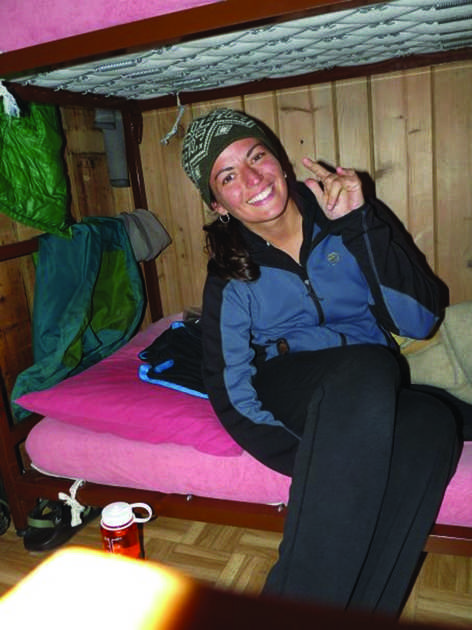This June, beloved science teacher Lyanne Abreu will bid her students and colleagues farewell. She has taught environmental science, Integrated Science 1-2 and one year of Integrated Science 3-4. Though she has only taught at Tam for six years, Abreu has become somewhat of a fixture to students of Tam; one of those personalities who come to embody the school.
“I’ve had her all three years of science. I don’t know what I’m gonna do without her,” said junior Kaitie Gillespie.
It’s ironic that Abreu didn’t always want to be a teacher, that she hadn’t always considered it. “I didn’t know what else to do,” she said. “Teaching seemed like the easiest thing. Wildlife ecology and conservation was my degree in college. I thought I was going to be some kind of nomadic, hermit-like forest ranger, but of course that didn’t happen because I was living in Miami. Two weeks after graduation, I started teaching in the classroom. I was 22, I looked younger than half my students.”
It’s probably the passion in Abreu that students recognize. In her classroom, she shows documentaries like “The Cove,” “Food Inc.,” “The Corporation,” and “Sharkwater,” presenting students with a compelling and comprehensive message of environmentalism and invariably following the films with impassioned lectures.

In senior Chris Franco’s words, “Ms. Abreu presses environmentalism upon people that don’t want it.”
She also practices what she preaches too. Her favorite activities are hiking, backpacking and, as she put it, “exploring.” In June and July, she plans to go backpacking in Kauai and whitewater kayaking in Asheville, North Carolina.
It’s this very passion, this drive for education that is causing Abreu to move on.
“As a teacher, we convince students to dream big and achieve those dreams, but I am concerned that without the experience of realizing those dreams, I am relaying a message that has not been sought after. As such, I wish to take a year off to explore. I have no plans in particular. I have always had plans. I want to go where the wind takes me. My parents call it a curse, I would rather see it as a blessing to dream and establish new realities,” she said.
Listening to Abreu speak, it’s easy to see why she has been well-liked.
“She’s by far my favorite teacher.She’s very inspirational,” said junior Amy Yoger.
It’s also undeniable that her environmental science class has been fun while it lasted.
“I laugh daily because things are constantly done that are funny/ridiculous. I laugh so hard I’m crying. When people say ridiculous things in class and don’t catch on to what they said, I laugh. So maybe it’s not okay to laugh at your students, but that’s what makes my class go round––we all laugh… I laugh at myself as well and they’re always laughing at me too, so it’s all good. I’m definitely not above anyone else,” Abreu said.
In the spirit of this relationship with students, Abreu makes a point of taking her class on lots of field trips, but not the tame museum expeditions one tends to find in high schools. Her students toured the Tresch Dairy farm in Petaluma, went to the farmer’s market, saw the film The Lorax in theaters and a Mt. Tam hike has been planned.
“It takes a lot of time to organize [field trips], but when you’re outside of the classroom, you see people in a different way. There’s a more real sense of how people interact with each other; it’s not so formal,” said Abreu.
It’s this real-world style of education that Abreu seeks for herself.
“I wish to learn from people young and old alike. Not so much within the confines of an educational system, but within a much broader spectrum of lifestyles, cultures, values, and experiences. I wish to be a student again and to learn what others have to offer. All in all, I want to learn. I want to sit, look up at someone and take notes, I want to be interrogated, I want to study, I want to practice my outdoor skills and experience the world,” she said.
“It sucks for people that don’t get her next year,” said junior Brigitte Winkler said.
“I cannot quantify what I will learn or do during my absence, but I wish to learn what cannot be taught in a classroom and from these experiences, I know I can become a better teacher, a greater teacher,” concluded Abreu.


